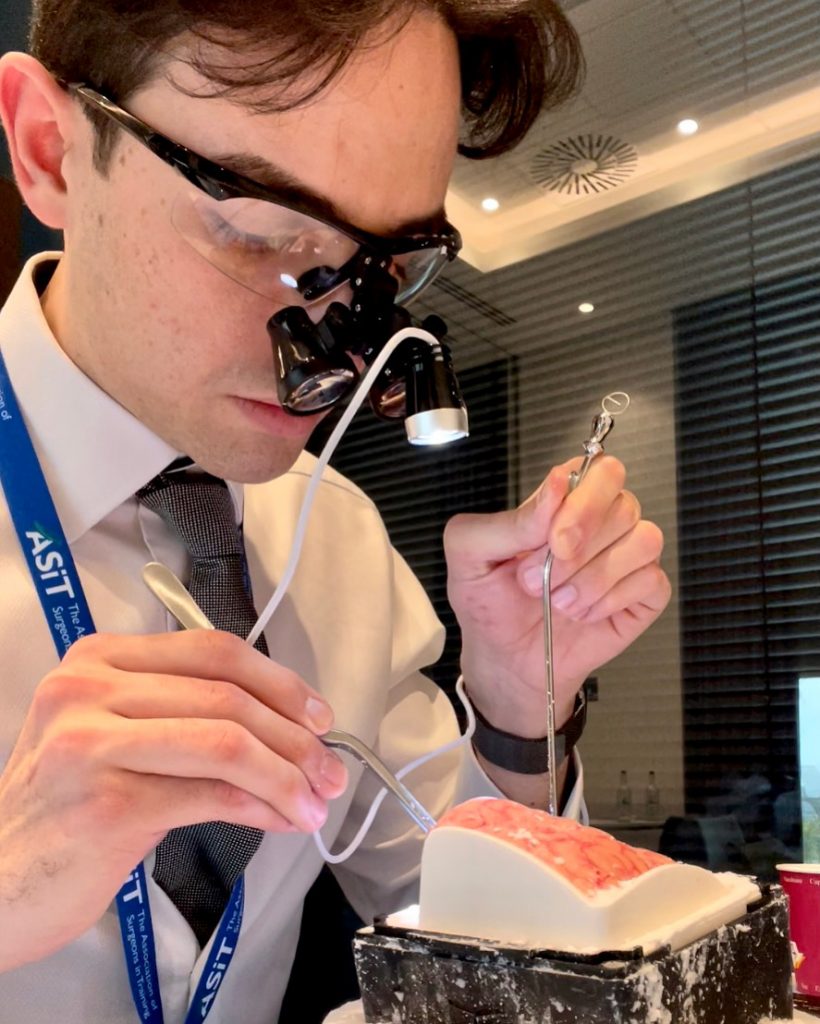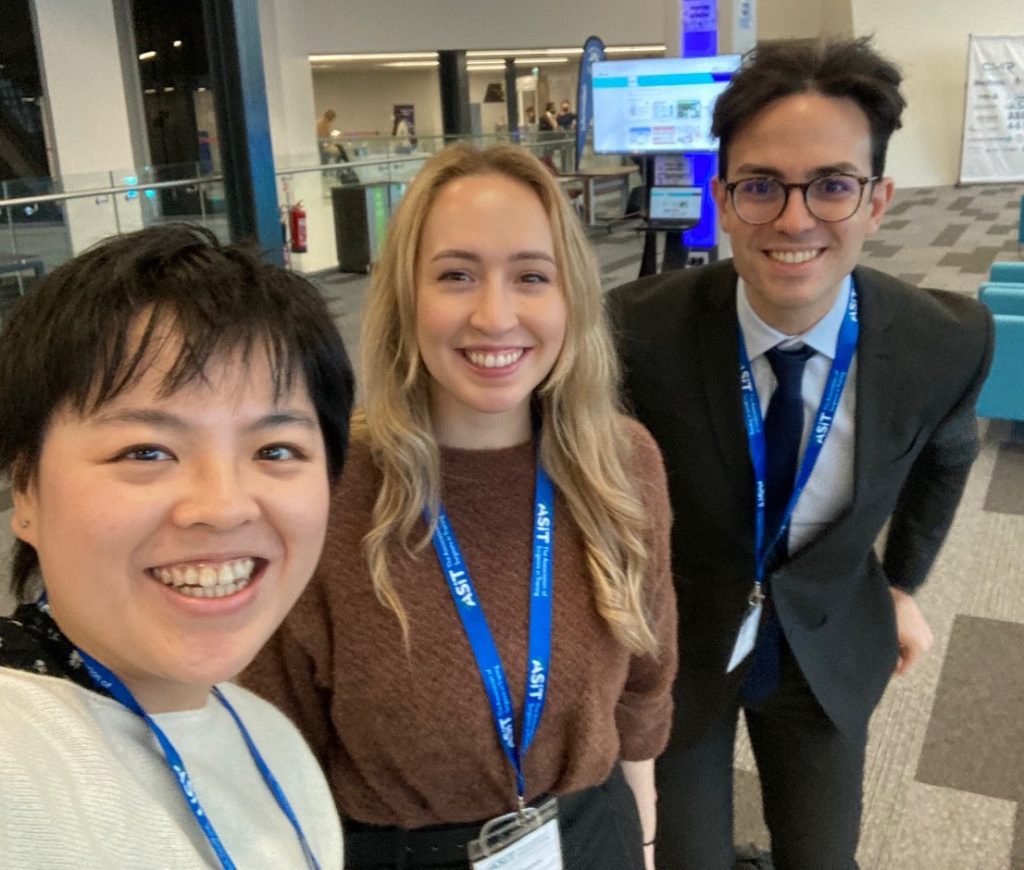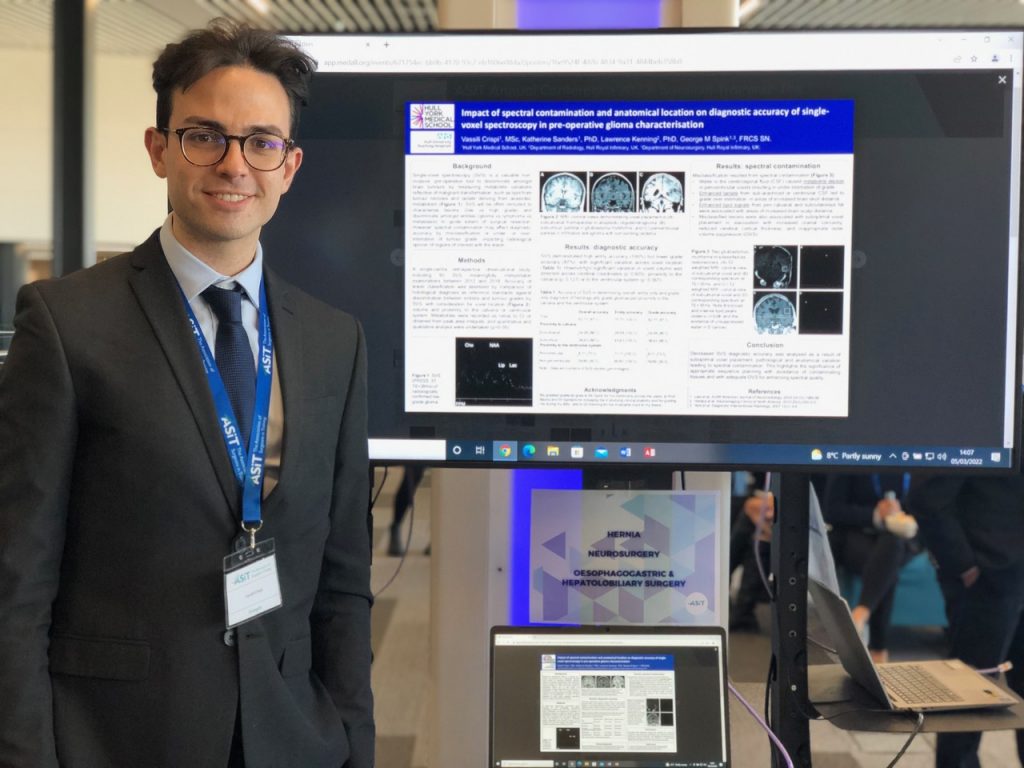After a long and hard pause due to COVID, the Association of Surgeons in Training (ASiT) annual meeting finally returned to a physical venue, and the 2022 conference took place at the beginning of March at the P&J Live Centre in Aberdeen, Scotland. Needless to say, the programme was packed with exciting and thought-provoking opportunities, lectures and workshops for personal and professional development for the hundreds of medical students and trainees who travelled across the country to meet face-to-face.
At the core of the three-day event was the theme of the conference: ‘Surgical training: the evolution’. This aimed at covering a range of issues, from the significant change and discussions that have taken place since the start of the pandemic to the latest upgrades in state-of-the-art surgical techniques and technologies. The conference took place across the weekend, but the first day was dedicated to a number of introductory cutting-edge courses in surgery ranging across all specialities, such as laparoscopic or cardiothoracic skills, as well as equality, diversity and inclusion workshops, a robotic course, and a skills course in innovation and entrepreneurship.
The core of the three-day event was the theme of the conference: ‘Surgical training: the evolution’.

As I have an interest in neurosurgery, I attended the neurosurgical programme, where we were given an opportunity to discuss recruitment into the speciality and career development alongside undertaking first-hand simulated neurosurgical procedures. This is a rare occurrence, especially at such early stages of surgical training. In fact, the organising team had secured extraordinarily realistic Brainbox simulators to perform burr holes, craniotomy and dissection for pterional, subtemporal and retrosigmoidal approaches to the skull base. In addition, we took turns to performing emergency external ventricular drain on a simulated head. Being able to perform real-life procedures in this simulated environment with realistic models was astounding.
On day two, the proceedings of the conference began with very intriguing and thought-provoking discussions around training and culture change, which is certainly the highlight of my experience of the conference, because of my passion for medical politics and leadership. After a somewhat disappointing Q&A session with the Presidents and deputies of the Royal Colleges of Surgeons, during which they failed to appropriately address questions from the audience on the cost of training and lack of equal access to training opportunities, the discussion moved on toward equality, diversity and inclusion within the profession. This was an incredibly empowering, challenging, and emotional plenary to attend, with interventions by Mr David Sellu, Prof Farah Bhatti and Miss Christina Mitoko on racial discrimination and diversity in medicine, Miss Philippa Burns and Miss Ginny Bowbrick on life as a transgender surgeon and inclusion of LGBTQ+ colleagues within the profession, and by Mr Simon Fleming and, virtually, Miss Becky Fisher on sexual assault in surgery. At the end of the plenary, the audience was left speechless and yet ecstatically empowered by the experiences brought to this conference. Of utmost significance was the way in which the focus on diversity and inclusion had shifted: no longer as a session being held at the end of the academic programme and in a side room, but at the beginning of the event and on the main stage. This was a powerful message that our surgical training is truly evolving, and trainees are demanding and bringing about this change in culture.
The focus on diversity and inclusion had shifted: no longer as a session being held at the end of the academic programme and in a side room, but at the beginning of the event and on the main stage.
The remainder of the conference provided exceptional opportunities for networking, not only during workshops, but also around the exhibitions and poster presentations with nearly 1,000 abstracts having been submitted to the agenda committee. Once again, it was pleasantly surprising to witness a refreshing change to an academic programme with the introduction of a variety of breakout sessions, including yoga practice and an escape room, which offered escapades from the busy schedule. To the opposite extent, delegates were also given the great opportunity to explore and discuss issues surrounding flexibility in training, taking a year out and making the most of a break from training, being a parent in training, and sustainability for the environment, amongst abstract oral presentations and prize sessions.

Alongside the issues of diversity and inclusion, I personally took the opportunity to network and discuss issues regarding surgical training with colleagues, such as Mr Fleming and Prof Bhatti, as well as networking with old medical school colleagues. It was positively stimulating to debate widespread concerns for the cost of training and access to recruitment, especially in the current climate of junior doctors’ pay degradation, whilst also exploring how trainees across the four nations are tackling these issues locally and campaigning for better working conditions.
Lastly, but certainly not least, the ASiT Gala charity dinner was another fantastic opportunity to witness excellence within our profession, whilst dining and supporting good causes. In fact, the dinner was purposed to support two charities: Changing Faces and Doctors of the World. In addition, three prestigious prizes were awarded to outstanding surgical trainers across the country, in recognition of their incredible work to support and encourage trainees in their careers. These were the Silver Scalpel Award to Prof Peter Brennan, the Silver Suture Award to Mr Ricky Ellis, and the newly introduced Silver Scissors Award to Mr Arjun Nathan. It was a truly inspirational night, also marked by some fun dancing to traditional Scottish songs.
The ASiT 2022 conference was a refreshing and exciting opportunity to attend and present at, finally returning to in-person events and networking with longstanding and new colleagues across the country that are likeminded. It always is a great opportunity to share opinions and experiences with more senior colleagues as well as gathering and developing new ideas for projects and career development. This was my first ASiT conference, but I can confirm that I will definitely look forward to next year’s event.

~~~~~~~~~~~~~~~~~~~

Dr Vassili Crispi is an academic FY1 doctor in West Yorkshire, with an interest in neurosurgery, leadership and medical politics. He is an aspiring academic neurosurgeon and LGBTQ+ advocate in medicine for both staff and patients. In his spare time, he enjoys cooking, playing music, travelling, and photography.

